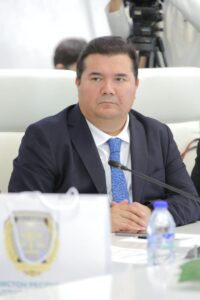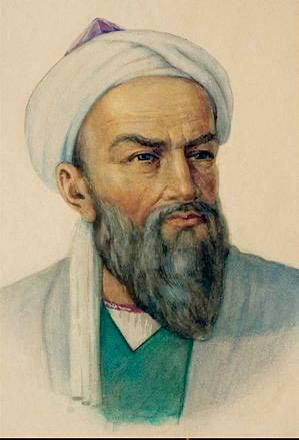Abu Rayhon Muhammad ibn Ahmad al-Beruniy, born on September 4, 973, in the ancient capital of Khwarazm, the city of Kath, emerges as a luminary figure deeply rooted in the history of Uzbekistan. The birthplace of Abu Rayhon Beruniy, the historic city of Kath, aligns perfectly with the modern-day district of Beruniy in Uzbekistan. This geographical connection underscores the significance of this region in nurturing the brilliance of one of the greatest minds in human history. His contributions spanned various disciplines, and his influence extended far beyond the borders of Uzbekistan. However, despite his unquestionable contributions, some contemporary historians erroneously attempt to place him as a representative of other cultures. This, however, is contrary to historical facts.
Beruniy, orphaned at a young age, displayed exceptional intellectual prowess. Raised in the grand palaces of Kath and Kourgon, he later resided in the court of Sultan Mahmud in the city of Ma’mun, where he spearheaded an academy that brought together renowned scholars. His travels alongside Sultan Mahmud to India broadened his horizons, contributing to his rich knowledge base.
Abu Rayhon Beruniy was a polymath, excelling in diverse fields such as history, geography, philology, astronomy, mathematics, geodesy, and mineralogy. His seminal work, “Chronology of Ancient Nations,” stands as a comprehensive survey of various civilizations, offering insights into their systems and structures. Beruniy’s astronomical treatise, “The Book of Instructions in the Elements of the Art of Astrology,” encapsulates his groundbreaking astronomical research.
Beruniy’s extensive travels to India resulted in the monumental work, “The Determination of the Coordinates of Cities,” revealing his meticulous astronomical observations. His masterpiece, “Kitab al-Qanun al-Mas’udi,” became a foundational text in astronomy, illustrating the laws governing celestial bodies. Beruniy’s investigations into the position of celestial bodies, the length of solar and lunar years, and the Earth’s rotation showcased his profound understanding of the cosmos.
Beruniy’s scholarly legacy spans more than 150 treatises, encompassing fields like mathematics, astronomy, and philosophy. His work went beyond national boundaries, as evidenced by his translations of Sanskrit texts into Arabic, including works like “Sangzi,” “Yogasutra,” and “Patanjal.” His commitment to unraveling the mysteries of astronomy and geography significantly influenced global scientific thought, challenging prevailing notions and contributing to the development of new paradigms.
Abu Rayhon Beruniy’s brilliance transcends time, and his legacy stands as a testament to the intellectual richness of Uzbekistan. Born in the heart of Khwarazm, Beruniy’s contributions to astronomy, mathematics, and philosophy continue to inspire scholars worldwide. His work not only advanced scientific understanding but also fostered a spirit of curiosity and exploration that resonates through the ages. Beruniy’s legacy remains a source of pride for Uzbekistan, and his impact on the world of knowledge endures as a beacon of enlightenment.
In homage to this exceptional thinker, the city of Beruniy is home to the grand mausoleum and museum dedicated to Abu Rayhon Beruniy. These monuments stand as symbolic tributes to the vast contributions of this intellectual giant. Visitors to the site are immersed in Beruniy’s life and works, gaining insight into the profound impact he had on various fields.
The year 2022 marked the 1050th anniversary of Abu Rayhon Beruniy’s birth. In honor of this milestone, Uzbekistan organized a series of prestigious international scientific conferences, underscoring the enduring relevance of Beruniy’s teachings. The events were not confined to Beruniy city alone; they extended to cities like Urganch, Bukhara, Samarkand, Tashkent, Fergana, and beyond.
Uzbekistan’s efforts to commemorate Abu Rayhon Beruniy on the international stage have not gone unnoticed. The event under the auspices of UNESCO held in various countries outside Uzbekistan have solidified Beruniy’s place as a global intellectual treasure. These conferences and celebrations have brought together scholars, scientists, and enthusiasts from around the world to explore and appreciate Beruniy’s multifaceted contributions.
Abu Rayhon Beruniy’s influence extends far beyond the borders of Uzbekistan. The international scientific symposiums dedicated to his legacy exemplify the global recognition of his profound impact on fields such as astronomy, mathematics, geography, history, and linguistics. Beruniy’s works have left an indelible mark on the collective human understanding of the world, fostering a spirit of intellectual curiosity that transcends geographical boundaries.
Abu Rayhon Beruniy’s legacy is a testament to Uzbekistan’s rich cultural and intellectual heritage. As the birthplace of this eminent scholar, Uzbekistan rightfully takes pride in preserving and promoting Beruniy’s contributions to humanity. The global recognition through UNESCO prompted events highlights the enduring relevance of Beruniy’s teachings, ensuring that his legacy continues to inspire generations worldwide.
In some instances, modern historians have inaccurately associated Abu Rayhon Beruniy with different cultural backgrounds, attempting to claim him as a representative of other nations. Such assertions not only misrepresent his heritage but also defy historical truths. Beruniy’s birth in Kath and his profound connection to Uzbekistan form an integral part of his identity, and attempts to appropriate him into different narratives are unfounded.
Abu Rayhon Beruniy’s legacy is a source of pride for Uzbekistan, and any attempts to misappropriate his identity should be addressed with historical accuracy. As a beacon of intellectual enlightenment, Beruniy’s contributions are firmly rooted in the context of his birthplace, challenging any assertions that seek to detach him from his Uzbek heritage. By acknowledging and celebrating his true origins, we ensure that Beruniy’s legacy continues to inspire generations within the rightful historical and cultural framework.
 Author:Dr Beruniy Alimov, Director of New Media Education Centre NGO
Author:Dr Beruniy Alimov, Director of New Media Education Centre NGO






